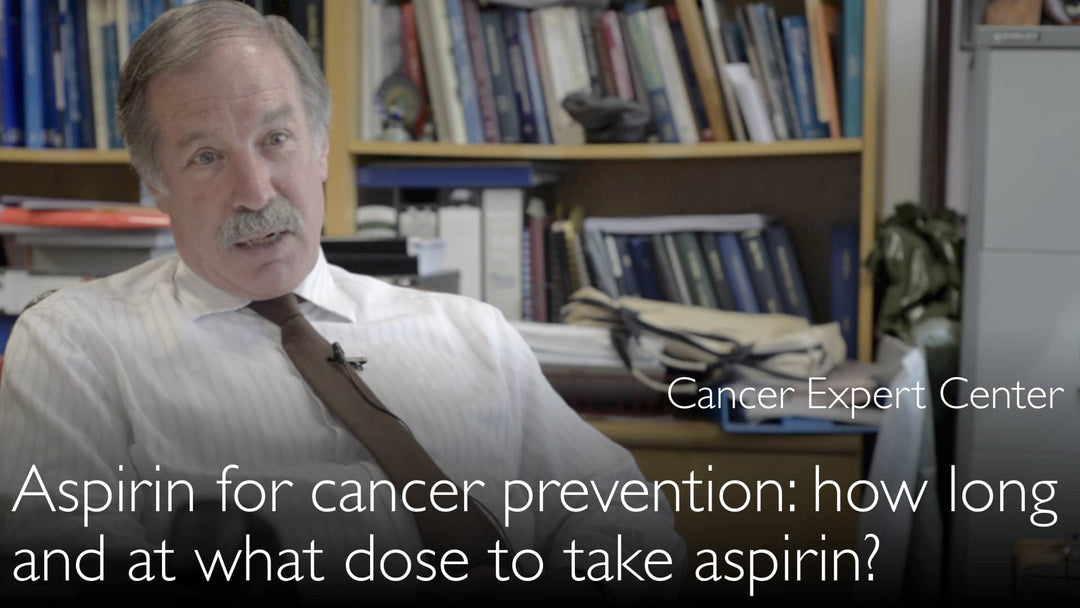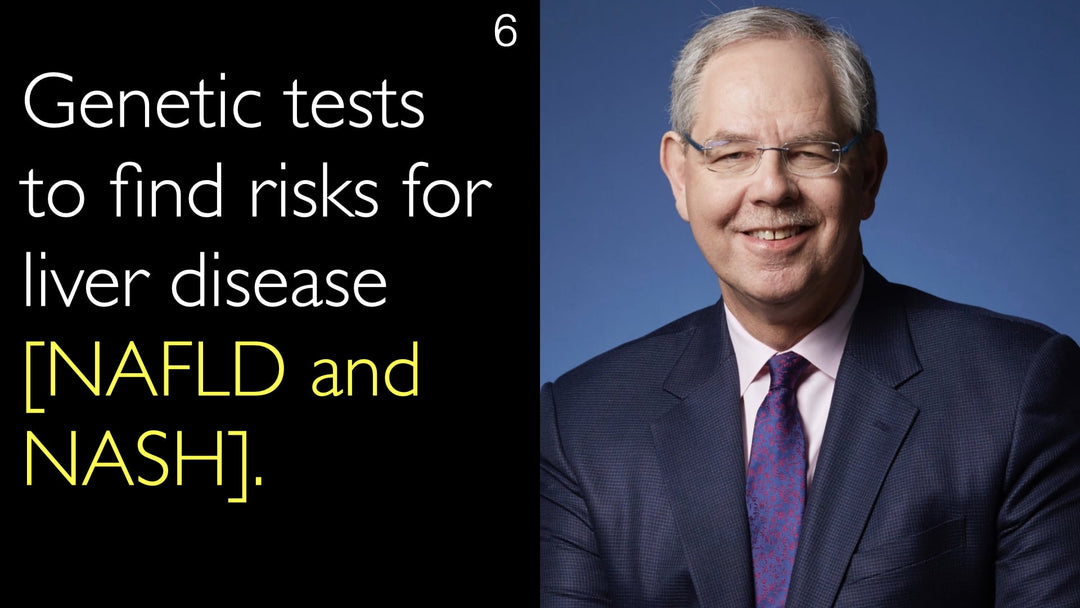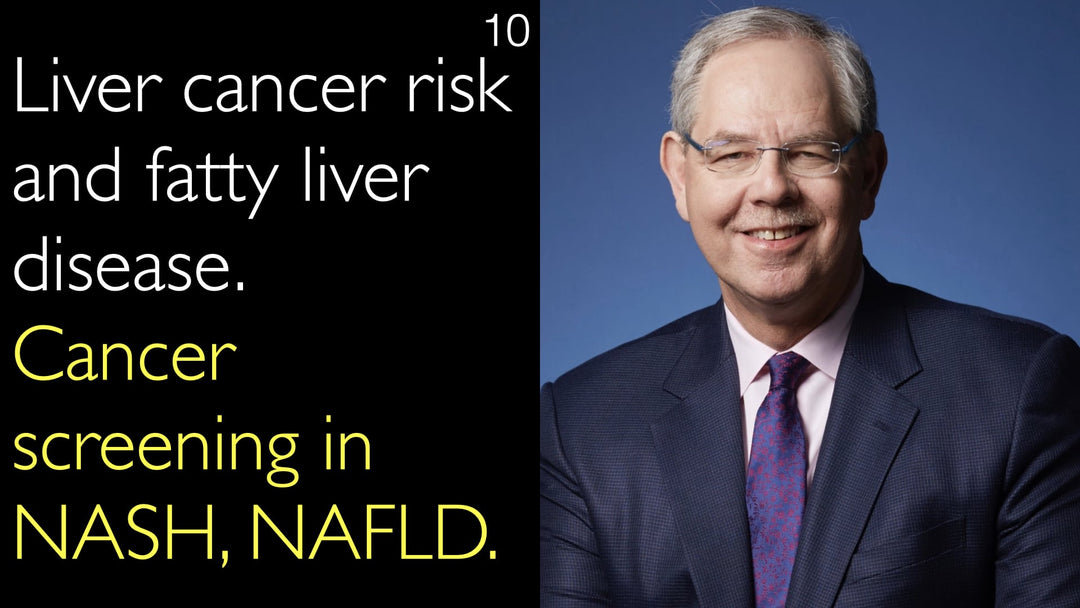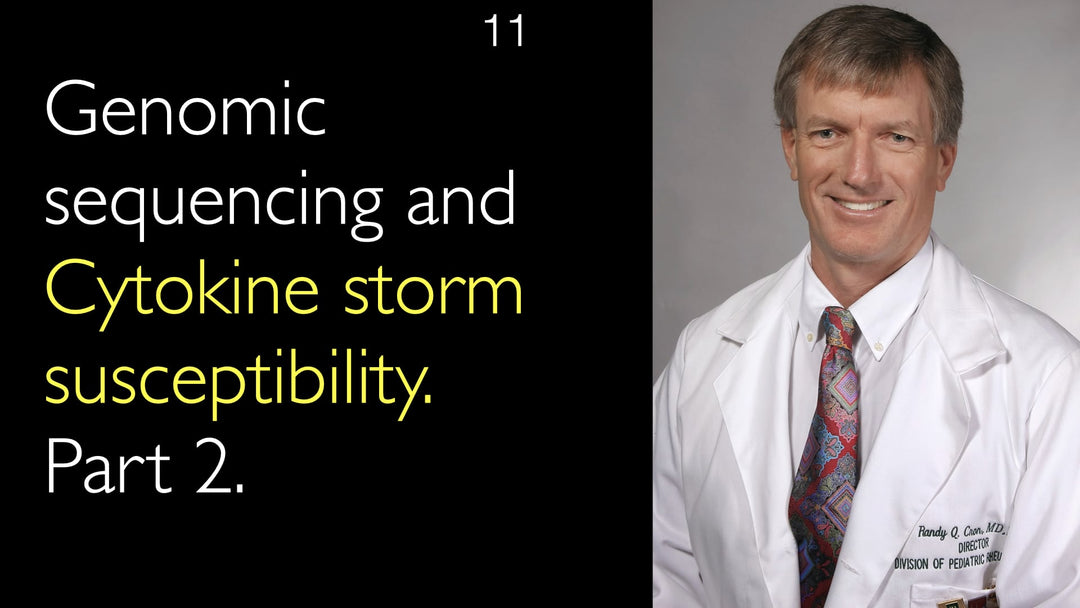Leading expert in cancer prevention, Dr. Jack Cuzick, MD, explains how long to take aspirin for cancer prevention, the optimal dose, and the critical need for a large clinical trial to answer these questions definitively, while also highlighting the importance of testing for and eradicating H. pylori to mitigate the risk of gastrointestinal bleeding.
Aspirin for Cancer Prevention: Duration, Dosage, and Key Unanswered Questions
Jump To Section
- How Long to Take Aspirin for Cancer Prevention
- Mechanism of Action and the Lag Period
- Managing Aspirin's Bleeding Risks
- Optimal Aspirin Dose for Prevention
- The Critical Need for a Large Clinical Trial
- The Role of Governments in Cancer Prevention
- Balancing Benefits and Risks of Aspirin
How Long to Take Aspirin for Cancer Prevention
Dr. Jack Cuzick, MD, states that a minimum of five years of aspirin use is required to see a dramatic effect on cancer prevention. The exact optimal duration, however, remains a major unanswered question in preventive medicine. Dr. Jack Cuzick, MD, explains that it is unclear whether ten years of use provides a greater benefit than five years, a key issue that necessitates further research.
An intriguing possibility discussed by Dr. Jack Cuzick, MD, is that the protective benefits of aspirin might persist long after a patient stops taking the medication. This potential "carryover effect" is seen with other preventive agents like tamoxifen for breast cancer, but it has not been definitively proven for aspirin and cancer prevention overall.
Mechanism of Action and the Lag Period
The reason for the long lag period before aspirin's cancer prevention effects become apparent is not known with certainty. Dr. Jack Cuzick, MD, suggests the most likely explanation lies in the multi-stage process of cancer development. Cancer formation involves early and late stages, and aspirin is believed to work on some of these early stages.
These early, pre-cancerous changes can take many years to develop into a detectable cancer. Therefore, an intervention like aspirin that acts early in this process would require a long duration of use before a significant reduction in cancer incidence is observed in clinical studies.
Managing Aspirin's Bleeding Risks
The primary side effect of aspirin is gastrointestinal bleeding, a risk that is present only while the medication is being taken. Dr. Jack Cuzick, MD, emphasizes that this risk is also strongly linked to Helicobacter pylori infection. Approximately 20% of 60-year-olds have this asymptomatic stomach infection, which they are unaware of.
Testing for and eradicating H. pylori with antibiotics before starting aspirin could reduce the associated stomach bleeding risk by about 30%. This simple preventive step could significantly improve the safety profile and benefit-risk ratio of using aspirin for long-term cancer prevention.
Optimal Aspirin Dose for Prevention
A central question is whether a low-dose aspirin (75-100 mg) is as effective for cancer prevention as a standard dose. According to Dr. Jack Cuzick, MD, indirect evidence from cardiovascular disease trials suggests that the benefits are just as significant, and possibly even larger, with the low-dose formulation.
Despite this promising indirect data, there have been no direct comparison clinical trials that randomize individuals to take either low-dose or standard-dose aspirin specifically for cancer prevention. This lack of direct evidence means the optimal dose for maximizing benefit and minimizing harm remains formally unknown.
The Critical Need for a Large Clinical Trial
Dr. Jack Cuzick, MD, outlines a vision for a single, large clinical trial designed to answer three critical questions about aspirin use. This trial would investigate the optimal duration of use, compare low-dose versus standard-dose aspirin, and evaluate the impact of H. pylori eradication on bleeding risk.
Dr. Anton Titov, MD, the interviewer, notes the significant public health importance of such a trial, as the entire population could potentially benefit from aspirin for cancer prevention. The trial would provide the clearest answers on how to best use this common medication to reduce cancer risk on a global scale.
The Role of Governments in Cancer Prevention
A major barrier to conducting this essential research is funding. Aspirin is a generic, inexpensive medication whose patent expired in the 1930s. Therefore, pharmaceutical companies have little financial incentive to fund large, expensive trials for a drug that will not generate significant profit.
Dr. Jack Cuzick, MD, argues that this is an area where government health services must take responsibility. He states that governments will ultimately benefit from a reduction in cancer cases, leading to lower treatment costs. Investing in a definitive aspirin trial is a public health imperative that falls to governmental bodies.
Balancing Benefits and Risks of Aspirin
The decision to use aspirin preventively involves a careful balance between its benefits and risks. The potential for a 20-30% reduction in the risk of certain cancers, particularly colorectal cancer, is a significant benefit. However, this must be weighed against the real, albeit manageable, risk of gastrointestinal bleeding.
As Dr. Jack Cuzick, MD, explains, the risk of bleeding also increases with a patient's age. This makes determining the right age to stop aspirin therapy another crucial question. A successful clinical trial would provide the evidence needed for doctors and patients to make these important decisions with greater confidence.
Full Transcript
Dr. Anton Titov, MD: You underscored this cancer prevention fact earlier. A person needs to take Aspirin for at least five years to see dramatic effects of cancer prevention. Correct!
Dr. Anton Titov, MD: How many years do you have to take Aspirin for prevention of cancer?
Dr. Anton Titov, MD: Why is there such a long lag period to see cancer prevention effects of Aspirin?
Dr. Jack Cuzick, MD: I think it's uncertain why it is such a long period. The most likely explanation is that cancer is not just a disease; it's a multi-stage process with early and late stages. Probably, Aspirin is working on some of the early stages of cancer formation. These early stages take a long time to develop into cancer.
Dr. Jack Cuzick, MD: How long you should take Aspirin is not known with certainty. It's clear you have to use Aspirin for at least 5 years. Whether 10 years is better than 5 years is an open question. We'd like to do a clinical trial on the duration of taking Aspirin for best cancer prevention.
Dr. Anton Titov, MD: Side effects of Aspirin are essentially gastrointestinal bleeding. That really only occurs while you're taking Aspirin. So perhaps you can get the benefit with 5 years of using aspirin for cancer prevention.
Dr. Jack Cuzick, MD: Then you don't need to continue taking aspirin. Then, of course, a major side effect of aspirin use would disappear. That would be better for your overall benefit vs. harm ratio.
Dr. Jack Cuzick, MD: But perhaps there is not this long carryover effect of cancer prevention after you stop using aspirin. Whether 5 years of Aspirin will give you 20 years of cancer protection is not known. We saw a long effect of cancer prevention with tamoxifen in breast cancer. Exactly! Sometimes that's true for colorectal cancer.
Dr. Jack Cuzick, MD: We do not know that aspirin use for 5 years is enough for prevention of cancer. You may need to continue taking aspirin for longer than 5 years. Then we need to look at the time when you should stop.
Dr. Jack Cuzick, MD: We know that gastrointestinal bleeding risk increases with age. Side effects of aspirin associated stomach bleeding are also more important at older ages. So there is real benefit in being able to stop aspirin. But the benefits of cancer prevention by aspirin may last longer. Then we have to look very carefully at what the right age is for stopping Aspirin.
Dr. Anton Titov, MD: One of Aspirin's major side effects is gastrointestinal bleeding. It is also linked to Helicobacter pylori infection. Perhaps people should be tested for Helicobacter pylori infection.
Dr. Jack Cuzick, MD: Absolutely! We would like to run a very large clinical trial. We will evaluate three of these unknown ideas about how best to use Aspirin for cancer prevention.
Dr. Jack Cuzick, MD: First, about 20% of the 60-year-old population have Helicobacter pylori in stomach, but they are completely asymptomatic. They don't know it. H. pylori infection can be easily tested for and eradicated with antibiotics. That would have a major impact on reducing the amount of bleeding you get with Aspirin. It will probably be about a third less stomach bleeding when you completely eradicate Helicobacter pylori infection.
Dr. Jack Cuzick, MD: So that's probably worth doing. But again, we'd like to do a clinical trial to demonstrate the length of time for use of aspirin in cancer prevention.
Dr. Jack Cuzick, MD: The second question is this: Is low-dose Aspirin as good as standard dose Aspirin? The indirect evidence suggests that it is true. Many clinical trials for cardiovascular disease used low-dose aspirin, between 75 and 100 mg. The benefits of aspirin have been as big, maybe a little bigger even with low dose than with the standard dose. So there's indirect evidence that low-dose aspirin is best for cancer prevention. But there are no direct comparisons. There are no clinical trials that randomized individuals to take either low-dose Aspirin or standard-dose Aspirin.
Dr. Jack Cuzick, MD: The third question is this. You have already alluded to it.
Dr. Anton Titov, MD: How long should you take Aspirin for cancer prevention effect? Is 5 years enough or should you carry on longer?
Dr. Jack Cuzick, MD: All of those hypotheses can be tested in one large clinical trial. You can randomize people to each of those three arms of clinical trial. You can get a very clear answer on how long to take aspirin for maximum cancer prevention.
Dr. Jack Cuzick, MD: There is a large importance of Aspirin for cancer prevention. The whole population potentially could be taking Aspirin for prevention of cancer. It would seem wise to invest money in doing a large clinical trial to get the clearest answer.
Dr. Jack Cuzick, MD: But Aspirin is a generic medication. Bayer's patent on Aspirin expired in the 1930s. Aspirin is a cheap and widely available medication. At the same time, large clinical trials are very expensive. So the pharmaceutical companies might not have incentive to run them on medication with expired patent.
Dr. Jack Cuzick, MD: I think that's the real challenge. If Aspirin were expensive, you can be certain that the pharmaceutical industry would have promoted and run these clinical trials by now. Because there would be profit to make from use of aspirin for cancer prevention. Not that many very expensive medications have a 30% effect on reducing cancer risks.
Dr. Anton Titov, MD: But you have a generic cheap medication that has a potentially large therapeutic effect. So we can't expect the pharmaceutical industry to subsidize these clinical trials.
Dr. Jack Cuzick, MD: This is an area where I think health services and governments have a major role to play. They will get the benefit in terms of reduced cancer. They will have to treat fewer patients with cancer. I think it's the government’s responsibility to be conducting these large clinical trials of aspirin use in cancer prevention. They have to determine how best to go forward with Aspirin in cancer prevention.







